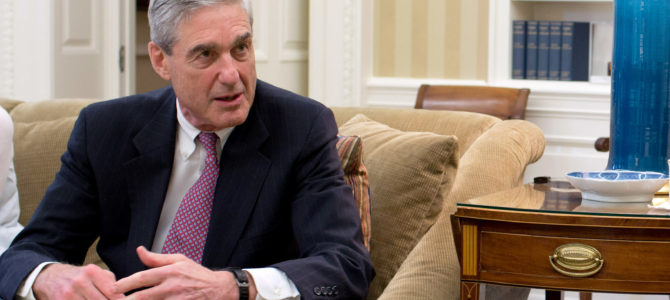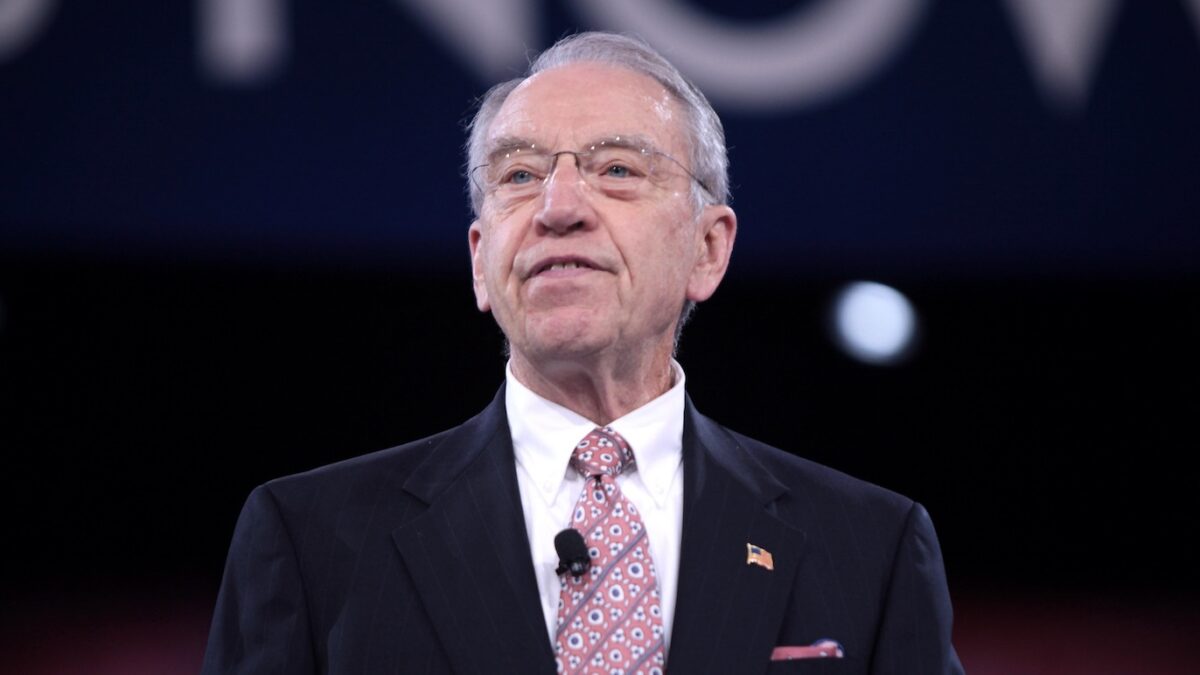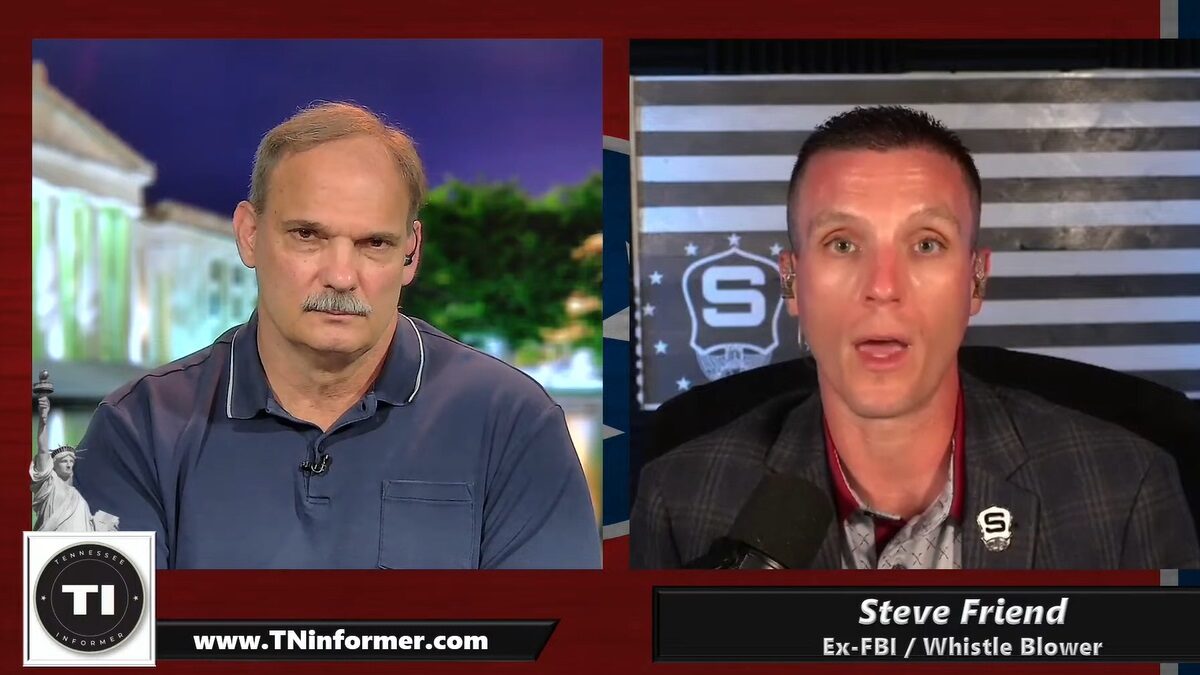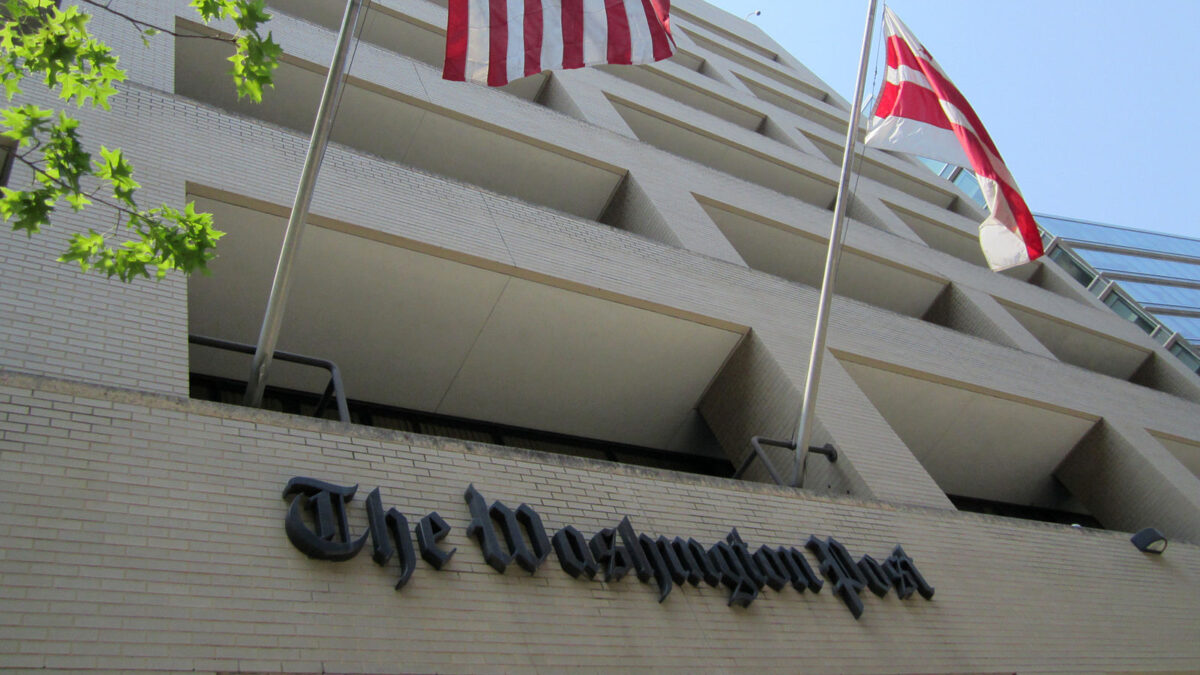
What we know about federal law enforcement and intelligence agencies’ spying on the Donald Trump campaign likely represents but a sliver of their covert activities. But it’s about time we do, and President Trump is right to demand an investigation. Here’s what we know so far.
In the run-up to the presidential election, on July 31, 2016, the Federal Bureau of Investigation (FBI) opened a “counterintelligence investigation” to probe whether the Trump campaign was colluding with Russia to influence the election. Over the last two weeks, in a series of articles, The New York Times and Washington Post revealed that the investigation, dubbed operation Crossfire Hurricane, involved a government informant connected to the Trump campaign.
On Friday, the Washington Post reported more details of the informant’s “months-long pattern of seeking out and meeting three different Trump campaign officials.” The presumed informant, a professor with contacts with both the Central Intelligence Agency and MI6, first met with Carter Page, then a foreign policy advisor for Trump’s campaign, at a conference in Cambridge in July 2016. He met Page several more times before the election.
According to the Washington Post, the informant also met in the late summer “with Trump campaign co-chairman Sam Clovis,” offering “to provide foreign-policy expertise to the Trump effort.” Then in September, the informant “reached out to George Papadopoulos, an unpaid foreign-policy adviser for the campaign, inviting him to London to work on a research paper.”
The Investigation’s Timing Is Under Scrutiny
The timing of the informant’s initial encounter with Page proves significant because that meeting occurred before the FBI launched Crossfire Hurricane. That detail proves the raison d’être for the Washington Post’s Friday article because, with reporters already cracking the identity of the informant from the Post’s earlier articles, it would not be long before someone highlighted that early July meeting. For the last several weeks, the few members of the press bothering to report on the Obama administration’s targeting of the Trump campaign have questioned the FBI’s contention that it first launched its investigation into the Trump campaign in late July 2016.
The Washington Post gives cover to the revelation that the sting began earlier: “The FBI commonly uses sources and informants to gather evidence and its regulations allow for use of informants even before a formal investigation has been opened. In many law enforcement investigations, the use of sources and informants precedes more invasive techniques such as electronic surveillance.”
All true. But for the last two years the FBI maintained first that it did not spy on the Trump campaign and second that it only launched its “investigation” in late July 2016, after Australian officials informed the FBI that in May 2016 George Papadopoulos, a foreign policy adviser to the Trump campaign, blabbed to Alexander Downer, Australia’s ambassador to Britain, that the Russians had dirt on Hillary Clinton.
The New York Times promoted this narrative based on the “direct knowledge of the Australian’s role” by “four current and former American and foreign officials.” The storyline went that Downer only realized the import of Papadopoulos’ May revelation after WikiLeaks released emails hacked from the Democratic National Committee server in late July, precipitating the July 31, 2016, start of Crossfire Hurricane. Clearly, the insiders intended to create the impression that the FBI’s interest in the Trump campaign stemmed from legitimate concerns its allies had relayed.
Sometimes the FBI Investigates Before Its Investigation
But now we know that the FBI used the term “investigation” in a technical sense, not a colloquial one. Rather than vindicate the FBI, this raises the specter that the FBI extensively targeted Trump campaign officials before its official launch of Crossfire Hurricane.
There are a lot of possibilities, because under the attorney general’s guidelines the FBI may use extensive “information gathering activities” before launching an official “investigation.” Under the guidelines, the FBI may make an “assessment” “to obtain information about” a potential threat to national security.
At the assessment stage, the FBI may “seek information, proactively or in response to investigative leads,” “identify[] and obtain[] information about potential targets of or vulnerabilities to criminal activities . . . or threats to national security,” “seek[] information to identify potential human sources,” and “obtain[] information to inform or facilitate intelligence analysis.”
During the assessment phase, beyond obtaining publicly available information and using online resources, the FBI may “access and examine FBI and other Department of Justice records” and “request information from other federal, state, local, or tribal, or foreign governmental entities or agencies.” The FBI may also “use and recruit human sources,” “accept information voluntarily provided by governmental or private entities,” and “engage in observation or surveillance not requiring a court order.”
In addition to the one known informant, did the FBI use other informants or sources? Did the FBI reach out to foreign governmental entities or agencies? Did the FBI tail the Trump campaign staff, Trump organization employees, or his family? Did the FBI accept information about Trump and his campaign team from other foreign governments or private entities?
There’s Evidence It Did At Least Some of These
We already know that in late June or early July, an FBI agent stationed in Rome flew to London to meet with Christopher Steele, the former MI6 spook who in October provided the FBI with the Hillary Clinton campaign-funded “Steele dossier.” When Steele met with the FBI agent in the early summer, he provided information that the “Russian regime has been cultivating, supporting and assisting Trump for at least five years” and that Trump “and his inner circle have accepted a regular flow of intelligence from the Kremlin, including on his Democratic and other political rivals.”
Steele added that former top Russian intelligence officers claimed the FSB (the Russian intelligence agency) had compromising information on Trump (related to the “golden showers”) and “a dossier of compromising material on Hillary Clinton,” which had not yet been distributed abroad or to Trump. However, according to Steele’s memo, “the Kremlin had been feeding Trump and his team valuable intelligence on his opponents, including Democratic presidential candidate Hillary Clinton.”
Further, by the time the FBI officially launched Crossfire Hurricane on July 31, 2016, Steele had completed nearly half of the reports contained in the later-compiled Steele dossier. Had Steele previously relayed this information to the FBI, Central Intelligence Agency, or his former MI6 colleagues? Did those uncorroborated—and now disproven—details prompt the FBI to initiate Crossfire Hurricane?
The Curious Case of Joseph Mifsud
The circumstances surrounding Trump foreign policy advisor Papadopoulos likewise raise several disconcerting coincidences. In late February, Papadopoulos joined the London Centre for International Law Practice. In early March, just one week after Papadopoulos spoke with Trump campaign co-chair Clovis and learned he would serve as a foreign-policy advisor to Trump but before the announcement was made public, Papadopoulos crossed paths with a Maltese professor, Joseph Mifsud, while both were traveling in Rome.
Mifsud professed to have many Russian contacts, and immediately took Papadopoulos under his wing. Mifsud later introduced Papadopoulos to two individuals purportedly connected to Russia and Vladimir Putin, and fed Papadopoulos information he relayed to the campaign.
While Mifsud’s surface credential seemed well-established—he also ran the London Academy of Diplomacy—following Papadopoulos’ indictment for lying to the FBI about his connections and conversations to Mifsud, Mifsud’s story changed dramatically. He then declared he had “absolutely no contact with the Russian government.”
Mifsud, who spoke at a U.S. State Department-sponsored event in January 2017, also claimed that while in DC for the conference he spoke with the FBI. The FBI, however, did not expel Mifsud from the United States, or arrest him for spying for Russia or interfering with the election. Then, nine months later, Mifsud went missing from Rome.
Further, as I explained last week, Mifsud’s close friendship with Gianni Pittella, a well-known Italian member of the European Parliament, who later campaigned in Pennsylvania for Hillary Clinton, raises the prospect that the coincidental meeting in Rome was nothing of the sort. Was Mifsud another informant who purposefully sought Papadopoulos in March 2016 to feed him information about Russia to entrap members of the Trump campaign?
What If This Set the Stage for Deeper Spy Work?
All of this could have taken place before the FBI launched Crossfire Hurricane on July 31, 2016. Then, after initiating a formal investigation, the FBI held even broader authority to conduct surveillance of the Trump campaign. Once the FBI launches a full-blown investigation, agents have the authority to conduct undercover operations and issue National Security Letters (NSL). The FBI may issue NSL without court approval.
With these administrative subpoenas, agents may obtain detailed information about targeted individuals from communications providers, financial institutions, consumer credit agencies, and travel agencies. While we do not know how many NSLs the FBI used to target individuals connected with the Trump campaign or Trump organization, or when the FBI issued the NSLs, The New York Times confirmed last week that they were used in Crossfire Hurricane.
Additionally, following the launching of an investigation, the FBI may seek to use pen registers, trap and trace devices, electronic surveillance, and physical searches, pursuant to the Foreign Intelligence Surveillance Act. We know the FBI used these investigative methods beginning, at the latest, in October 2016, when the Obama Department of Justice obtained the first of four secret FISA court orders to monitor the communications of former Trump campaign adviser Carter Page. While Page was no longer associated with the Trump campaign when the FISC court issued the order, as former U.S. Attorney Andrew McCarthy has explained, this order also allowed the government to review prior communications between Page and campaign officials.
Further, from the court filings in the special counsel’s case against Papadopoulos, we know the FBI obtained a court order to search Papadopoulos’ email and Facebook accounts. This search allowed the FBI to review communications between Papadopoulos and Trump’s inner circle. We do not know when this court-ordered search took place or the factual predicate for the search.
We also know that following Trump’s surprise victory, but before his inauguration, the Obama administration listened in on a telephone call between Michael Flynn, Trump’s newly named national security advisor, and the Russian ambassador. What we don’t know is whether the government had tapped Flynn’s phone or intercepted the calls as part of normal surveillance of Russian officials. We also don’t know whether other members of the Trump campaign, transitional team, or current members of the administration were also targeted by the CIA, FBI, and National Security Agency. But it’s about time we do.
Correction: An earlier version of this article stated that Mifsud arranged for Papadopoulos to join his London-based think tank as director of international energy after meeting in Rome. However, evidence indicates Papadopoulos joined the London Centre for International Law Practice shortly before the Rome trip.









